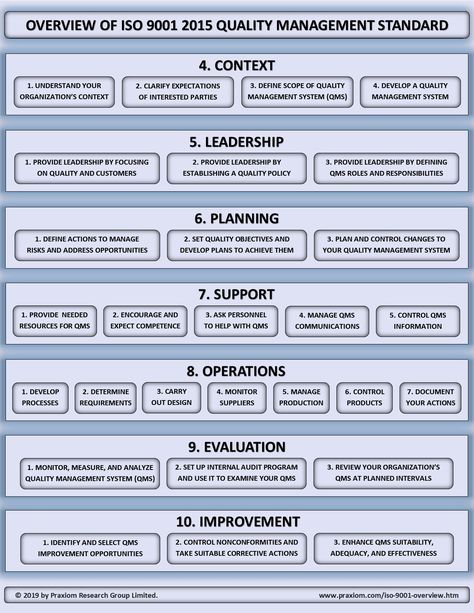Project quality management is the process of ensuring that a project meets its predetermined quality standards. It involves the use of various tools and techniques to ensure that the product or service being produced meets the desired level of quality. Quality management is an integral part of any project and is essential for the successful completion of the project.
The Importance of Project Quality Management
Project quality management is essential for the successful completion of any project. It helps to ensure that the project meets the desired quality standards and is delivered on time and within budget. Quality management also helps to ensure that the project is completed efficiently and effectively. It helps to identify potential problems and issues before they become major issues, thus reducing the risk of failure.
Tools and Techniques Used in Project Quality Management
There are several tools and techniques used in project quality management. These include quality assurance, quality control, process improvement, and failure analysis. Quality assurance involves the use of various techniques to ensure that the project meets the desired quality standards. Quality control involves the use of various tools and techniques to identify potential problems and issues before they become major issues. Process improvement involves the use of various tools and techniques to improve the efficiency and effectiveness of the project. Failure analysis involves the use of various tools and techniques to identify the root cause of any issues or problems that may arise.
Quality Assurance
Quality assurance is an important part of project quality management. It involves the use of various tools and techniques to ensure that the project meets the desired quality standards. Quality assurance includes the use of various tools and techniques such as process mapping, process flow diagrams, and process audits. These tools and techniques help to identify potential problems and issues before they become major issues, thus reducing the risk of failure.
Quality Control
Quality control is another important part of project quality management. It involves the use of various tools and techniques to identify potential problems and issues before they become major issues. Quality control includes the use of various tools and techniques such as process mapping, process flow diagrams, and process audits. These tools and techniques help to identify potential problems and issues before they become major issues, thus reducing the risk of failure.
Process Improvement
Process improvement is another important part of project quality management. It involves the use of various tools and techniques to improve the efficiency and effectiveness of the project. Process improvement includes the use of various tools and techniques such as process mapping, process flow diagrams, and process audits. These tools and techniques help to identify potential problems and issues before they become major issues, thus reducing the risk of failure.
Failure Analysis
Failure analysis is another important part of project quality management. It involves the use of various tools and techniques to identify the root cause of any issues or problems that may arise. Failure analysis includes the use of various tools and techniques such as process mapping, process flow diagrams, and process audits. These tools and techniques help to identify potential problems and issues before they become major issues, thus reducing the risk of failure.
Project Quality Management Plan
A project quality management plan is an important document that outlines the quality standards and processes that will be used to ensure that the project meets the desired quality standards. The plan should include the quality standards, the tools and techniques to be used, and the processes to be followed. The plan should also include the roles and responsibilities of the various stakeholders involved in the project.
You might find these FREE courses useful
- Top Engineering Project Management: Risk, Quality
- Engineering Project Management: Risk, Quality
- Project Planning
- Top Project Management Certification Google Courses
- Top Project Management Courses – Learn Project
- Top Project Management Principles And Practices
Conclusion
Project quality management is an essential part of any project. It helps to ensure that the project meets the desired quality standards and is delivered on time and within budget. Quality management also helps to ensure that the project is completed efficiently and effectively. It helps to identify potential problems and issues before they become major issues, thus reducing the risk of failure.


